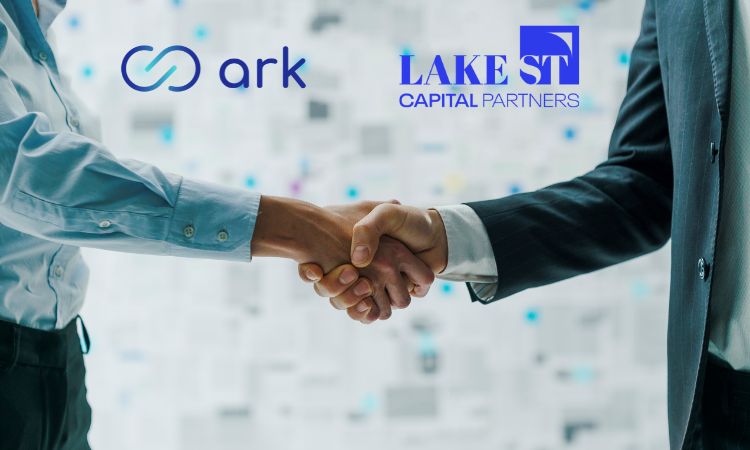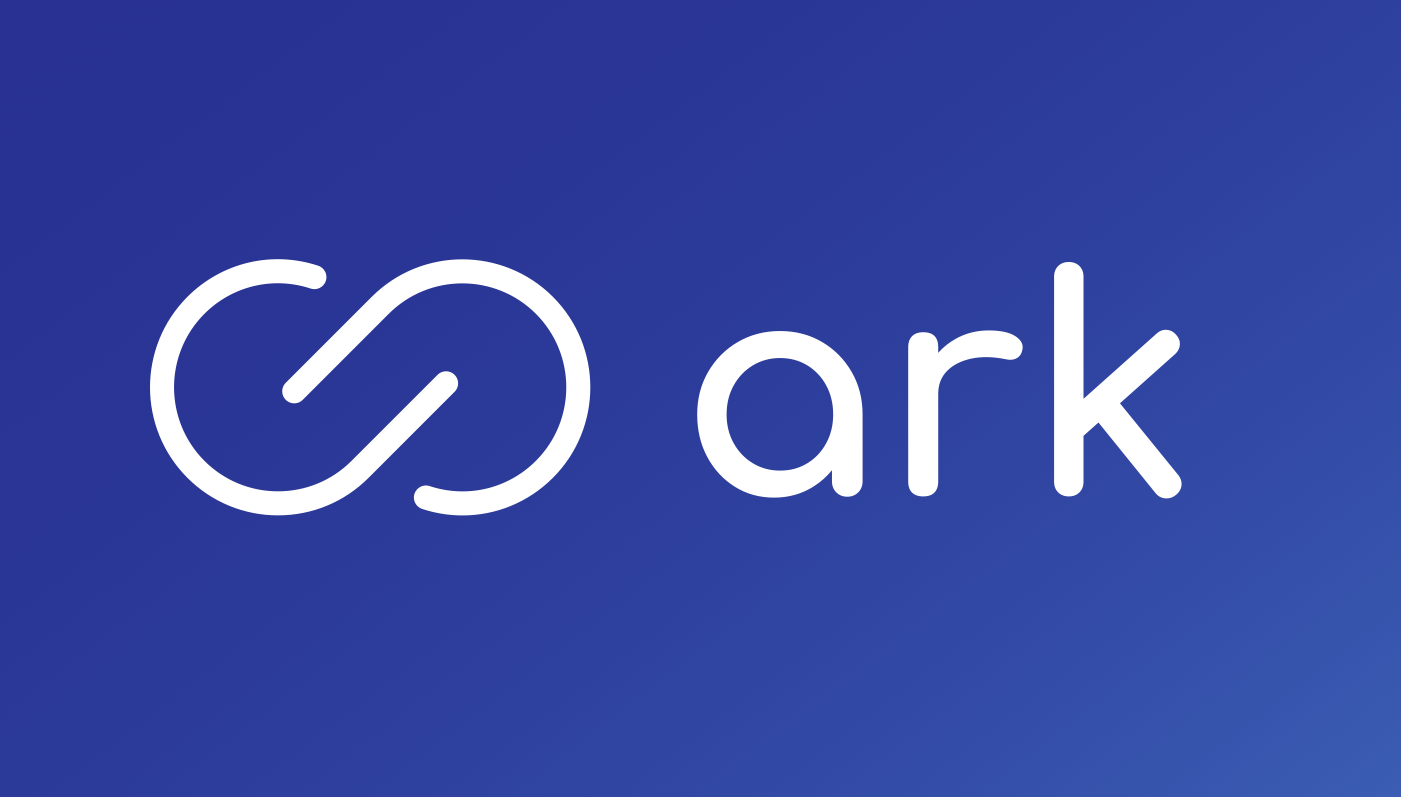Cornerstone Fund Services offers a complete solution at an affordable price. What does that look like from the standpoint of the investor experience their clients offer?
A highly developed body of thinking, research and best practices have been accumulated on the “customer experience,” “user experience.” We have investor relations as a practice. But the “investor experience” has not been mapped out as a separate, distinct and crucial area of expertise. Given how the investor relationship with GPs is being increasingly disrupted by how we communicate, research and measure, Ark sees now as the time to define what makes up high performance investor experiences today.
What does the Cornerstone story tell us about what to do next? Watch below and find out.
Chris Gale 00:03
This is the Investor Experience Series, with Ark and Cornerstone. Our headline is “What Does the Complete Solution Look Like at an Affordable Price?” We’re talking about fund services.
Nick Buroker 00:24
Thanks for having me on. I’m managing director at Cornerstone Fund Services. We’ve been around for about 10 years. We were founded by Ryan Davis, who was the CFO for a VC fund for 15 years prior to that, and then he stepped away and started his own firm. Since then, Standish Management has become a majority owner, and has gotten deep into the VC fund admin space. I spent my career in accounting, mostly in the private sector. I’ve seen a lot more of the operational stuff that our type of clients invest in. We’re on the front-server side, which is a lot of fun for me. What I, and a lot of our staff here, really enjoy about accounting for VC funds is that it’s a little more exciting – we get to see what our investors and our clients are investing in. We are now around 75 to 80 employees and we’re looking to continue to grow. The changes I’ve seen in the VC space, from when I joined seven years ago to now – it’s a totally different industry in terms of fund admin and servicing, GPs, and so forth. It’s definitely going to continue to evolve.
Chris Gale 02:20
Tons of people on this call have seen interest rates and concerns about banks and slow fundraising cycles. What are the pressures on both the GPs and the fund-services sides right now?
Nick Buroker 02:43
It’s definitely a tough market. You felt like almost anyone could raise a fund a few years ago. And now there’s a bit more of an effort, but there’s also more competition among GPs in terms of providing a product to their investors. Seven years ago, the technology was emails with capital account statements, K-1s, and you would password-protect them. But then if an investor needed a statement from two years ago, they didn’t want to dig in their emails. They reached out to us, and so a lot of information got passed around that way. The experience was cumbersome for not just the GPS, but also for the investors. The technology has really changed everything. Investors are trying to invest in great companies and get a great return. The last thing they want to worry about is doing an email search from two years ago to find a K-1.
Chris Gale 03:58
What is the product? What is the deliverable in the VC space in particular?
Nick Buroker 04:11
We work for the GPs, and we communicate to the investors as much as the GPs want us to. The whole point is distributions, returns. They invest, they want cash back. But VC funds – they last for 10 years, and they might not get a distribution till Year Seven. Or even if they get one in Year Three, they’ve got seven more years of potential distributions. So the product for the GPs is a great return on the investment, but during those 10 years, when they can’t do distributions, then the real product is the reporting. What’s the valuation? What are the metrics? What are the returns? The K-1s are obviously highly desirable for investors each year. They need to know that information. And so we are right in the mix. Even though we don’t impact distributions and the fund performance, we’re right in the mix of the product that the GPs give to the investors. Our goal is to make sure that the GPs can give the investors the best product possible until there are distributions.
Chris Gale 05:22
To enable the investor experience, your focus really is on enabling people to do that tech role?
Nick Buroker 06:00
Technology is great. But still, in 2023, it doesn’t do everything. Even at tech companies, there are people behind the scenes. We still need to hire great accountants, great people who do great customer service, client service, interact with the investors, with the GPs, and make sure that we’re providing what the GPs want. The nice thing for us is we don’t have to email sensitive information anymore. Over the years, we’ve seen and talked to all the tech partners out there, in terms of portals, in terms of ways to distribute information. They’re all designed a little bit differently. What we do is pick the best ones so that our staff has a great user experience, so they can get a product into the tech, so they want to work here, they’re happy, they like working with the clients, the GPs. And then the tech works. Then the investors have a good experience. Because when the investors don’t have a good experience, what do they do? They call the GPs and the accountants. We want to make them happy, to get them the information they need. We try to provide our staff with everything they need – the tools to do their job, the best that they can.
Chris Gale 07:27
You were saying the client service is part of what makes it exciting. This reminds me of Russ Laraway, chief people officer for Goodwater Capital, who wrote the book, “When They Win, You Win.’’ He said, the one thing every single one of us has in common at work, regardless of the industry, is that we want to be successful. Is that where Cornerstone is aiming? And is that what Cornerstone is trying to unlock at the GP level?
Nick Buroker 08:10
My philosophy in life is: Just win. Everyone can win. We’re all looking to have good experiences. And so when you simplify that to the business of Cornerstone and our funds and the investors, they all want wins. We’re accountants; we’re not investors. We chose our path because this is what we like. We like to live in our little safe box, but we love to win. We love it when our clients win and the investors win and it’s a great experience for everybody. We’re also nerds, right? We love “The Office,’’ and Michael Scott’s line, “It’s a win-win-win.’’ That’s how we roll.
Chris Gale 09:00
Can you give us some examples of processes or workflows or systems that you put in place that allow both the client team and your own team to see and experience success, and feel like they’re making progress, an impact?
Nick Buroker 09:34
How we operate in the flow, our workbooks, the accounting procedures – what we do nowadays is extremely different from what we did seven years ago. I was the 10th hire here. We have a lot more resources, a lot more reviews, checks, and balances. We create efficiencies across the firm, so when we work with other portals and other technologies, any one member can jump to a different team, and jump in. If a staff member takes a vacation or needs some time, our goal is to continue to service the client without disruption.
Chris Gale 10:54
Cornerstone has an amazing reputation. Excellent organizations tend to have workflows and processes that people can step up into. Can you tell us about the portal, and where investor meets LP digitally? And what role that could potentially play or should play?
Bill Ward 11:30
The industry historically has lagged behind the broader tech industry on adoption of modern technology. I started in fund admin and 11 years ago we were using a lot of email. In tech systems, everything looked and felt ancient. As an anecdote, I was on Sand Hill Road very early in my career. We were talking to a household name, a big VC, and I was sitting there looking at the wall with all the logos they had invested in – major tech companies. And I looked at the tech we had available in the industry to go report to their LPs. And it was just basic PDFs, right? It’s kind of static. Not very pretty. PDFs – this is how you’re getting information about these great companies that the GP you’re working with is investing in. So when we started Ark, what we envisioned for our LP portal was a dynamic “alive” view into the funding in some of those investments. They’re making it really a hub of information for the LP, and then back-ending all the operational processes, all the workflows, that you, the back office, or a fund admin like Cornerstone is using to deliver that information to the LP in near real time, and also to the GP. So it’s a system of truth that any constituency can access at any time, whether it be the LP or the GP, and putting that information as the point of record – but being a new system that’s click-through, that’s configurable. One of the things we like to say is that Ark was built by CFOs for CFOs. We understand those workflows, and we enable the accountants to get that information out to the investors in a very seamless way. And we’re also fit-for-purpose technology. So we’re built for VC, we’re built for private equity, we’re built for this industry. We’re configurable around the norms and the reporting styles of the industry. It’s not some big system that’s putting a square peg round hole. It’s a much more seamless experience, a modern experience, and really lets the LP interact with the fund in a very fit-for-purpose way. We don’t see that a lot in the industry.
Chris Gale 14:17
I wanted to ask more about that configuration. When I first encountered Ark, I was thinking of it mostly as, “I can get a start really quickly.” When it comes to processes and these workbooks, everybody’s seeing the same thing. But I’m anticipating that they iterate over time, as individual GPs develop their own best practices and efficiencies. Is configuration something you do at the beginning? Or are users seeing that configuration as testing something new, then going back and building into the portal?
Bill Ward 15:19
Certainly both. There’s configuration at that very beginning and an iterative process after that. A fund may come on. Something as simple as not having any transfers in or out for an LP, they may not have configured that into their system upfront, but it’s very easy to add something like that. The way we build the system is, it’s a roll-forward process that allows changes to happen, be verified, be reviewed, be locked down. It builds on itself. It’s a system that has the full audit trail, that’s easy to use but something that you can easily configure and change as you go through new situations.
Chris Gale 16:20
So how easy is it? If you don’t have many technologists on the team, do you need an implementation consultant potentially to review? Technology companies are trying to go in the same direction that Cornerstone is going, which is they want to plan fairly quickly. How do you make configurability actually work in practice? After installation?
Bill Ward 16:54
That’s a big part of delivering the investor experience. If GPs can help you request something, being able to then look at your systems, how you’re doing it and making changes happen very quickly, in near real time, that’s important to us. That’s how Nick and his team deliver an exceptional experience to their clients and those clients’ investors. Most of our configuration in the system is “What you see is what you get.” You never have to call a coder in another country that doesn’t really know the fund. On our workflows, the simplest anecdote is Excel. You can use Excel functions within our platform, and every fund accountant understands Excel. When we looked at the systems that were available prior to starting Ark, these were ones you’d have to learn via an enterprise class or general ledger class. There was a very high learning curve. And there was a black box somewhere and you said, “How does that really work behind the scenes? Do I have to kind of shadow this with an Excel workbook, because it’s what I understand and it’s my auditors understand?” So when we built ours we said, “Let’s build in some of those Excel functions. Let’s be able to export anything you’re looking at to Excel with formulas attached intact, so that you can look at this and say, ‘Hey, I understand this, because I know Excel, but it’s controlled, so I can roll this forward without a bunch of copy/paste or anything like that.’” So the short answer is you can use Excel, but it’s within the workflow that we built. And that’s very easy for fund admins. That just allows Nick and his team to turn around and deliver it to their clients and the LPs in a very fast, efficient way that they know and understand intuitively.
Chris Gale 18:43
Part of me wants to feel that sometimes inaccessibility could be a sign of prestige. Is that changing? LPs in this current environment –there are a lot of markdowns, for instance, out there. Where is the investor experience right now? Where is it living between email, PDF, you know, video conferencing, calls, portals? Where are you seeing things heading? What’s the mix?
Nick Buroker 19:41
Technology is the main direction, but that’s a big, easy, vague answer. Everyone says that with technology, they’re creating this great experience. We’re all seeing video conferencing capability. We’re able to talk to our LPs and our GPs that are spread throughout the world and have these face-to-face conversations. But is it FaceTime? Is it Zoom? Is it Teams? You’ve got all these different ways to do that. The investors need to have a great experience in the portal. The portal is fed by the GP and us in accounting. They need to get away from, and want to get away from, an email with a PDF. But exactly what does it look like? That’s what’s tricky. If a client comes to us and needs a certain portal, or has a certain opinion or preference, our job is to take care of them. That’s what gives us the great kind of broad depth in terms of the technology that is out there. We see portals that are designed with GPs in mind. And they don’t really work well for us or the investor. We see portals that are flashing pretty for investors, but difficult for us to use, so then it’s difficult for us to get the data there. And the GPs are doing it only because it looks flashy for investors. We’ve seen portals where, you know, you can forget about Excel, and you have to learn how this massive box that wasn’t designed for VC works. If you can get a product that works well for the GP, the accountant and the investor, you can get into more real-time accurate information. That’s a good user experience.
Chris Gale 22:34
I feel as though I’m hearing something of a Goldilocks story, which is you want to be flexible and allow an investor experience that is not too fixed and frozen. But on the other hand, you don’t want systems that turn things into a mass. For instance, with Cornerstone, I imagine that you have GPs that want things handled very differently. And so doing that across a common platform must mean striking a balance. The other Goldilocks scenario is you have the GP, you have the investor, you have the fund services team. On the technology side, how do you try to bring those different users together to refine the product, or on the user side is there particular counsel or insight that you provide to help?
Bill Ward 23:43
We look at the GP and talk to LPs all the time. We look at them as distinct but connected user types and we create specific views and use paths for each to concentrate on what they need from the common data set that underlies the whole operation. It’s very important to us to understand those different users and build software specifically for them on the unified data set.
Chris Gale 24:37
Nick, how you handle it from your side?
Nick Buroker 24:42
We talk to clients, GPs who have years of experience, and they’re also investors in other funds and they’re on the user-experience side as well. It’s all very personal, opinion-based. When we talk to investors, we get all sorts of feedback from different things that they care about. And so we sit down and we say, “Now, this is what people want to see. We’ve got to get this taken care of and buttoned down.” Because we’ve worked with Ark for years now, we have that comfort where we can share our experiences, the clients’ experiences, investors’ experience with them, and be honest, and have those open conversations.
Bill Ward 26:05
One of the places where I think a lot of legacy competitors in the space haven’t done well, historically, is understanding that the back office had a perspective, and how that affects the end-user experience and the investor experience. It’s been a bit of an afterthought, as though they’re an accountant sitting in a back office somewhere, and they enter a journal entry, and they can figure out the rest. And as we talked about earlier, we’ve got a really flashy front end and it looks great for the GP, but maybe for the LP it’s just a disaster. There are systems out there that have focused on one part or the other, but a lot of times, especially in the fund admin side, the operational workflows have been neglected. For myself, coming from fund admin, we had to understand very fundamentally, from the beginning, how often do those systems work? We need to design workflows that succeed in a technical and operational perspective for GPs, LPs, and either in-house or outsourced accountants, and build that from the ground up. So we made sure we had a great system for fund admins, because that would then affect the investor experience. That’s a great point you made and with the feedback from all our fund admins, you got to put a great platform together for you guys, LPs, and GPs.
Chris Gale 27:43
We have three questions from participants. We may not have time for all of them. Nick, you mentioned accountants liking safe boxes. Do you have a recommendation for the most anticipated supercar of 2024?
Nick Buroker 28:07
The Lamborghini V-12 Revuleto.That’s going to be a hot-ticket item for sure.
Chris Gale 28:21
Anybody who doesn’t know Nick, this man knows a ton about supercars and the best that are out there. The second question, speaking of expertise: Any resources that either of you would recommend for the investor experience and understanding the investor experience, be they forums, books or news outlets?
Bill Ward 28:52
Private Funds CFO has been great, they’ve got a lot of information out there, as well as a couple of conferences on the circuit. Talking to other CFOs and getting to some of those conferences has been important from my perspective.
Chris Gale 29:11
I can’t get to the last question without taking us over and I want to respect everybody’s time. I will respond to the person with that third question. And if anybody has further questions, feedback, we’d love to have it and we’ll see you on the next webcast. Thank you both.
Bill Ward 29:34 Thank you. Bye, everybody.




